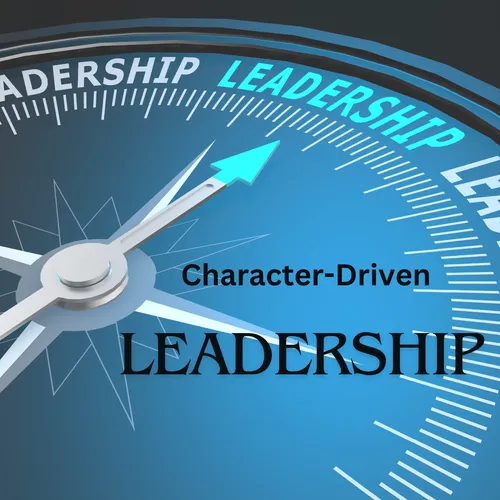Episode 032 - Kurt & Dane Podcast 003 Technology, Distractions & Attention Span
- Author
- Dane Deutsch
- Published
- Sun 07 Sep 2025
- Episode Link
- https://danedeutsch.podbean.com/e/kurt-dane-podcast-003-technology-distractions-attention-span/
Attention, leaders: In this episode, we pull back the curtain on how today’s tech—especially smartphones and rapidly advancing AI—shapes our attention, cognition, and relationships. Think of it as a friendly readiness briefing for the digital battlefield: what’s helpful, what’s harmful, and what to do about it.
We start with the attention economy’s not-so-hidden costs. Since the iPhone’s 2007 debut, most of us check our phones around 80 times a day—roughly 30,000 micro-moments a year. Each ping isn’t just “a quick look.” Interruptions can cost about 25 minutes of focus, plus another 15 to regain momentum—like slamming the brakes and then flooring it… over and over. Even having a phone within eyeshot reduces cognitive horsepower. The antidotes are simple and strong: get the phone out of sight, use Do Not Disturb, and turn off nonessential notifications. Your brain will send a thank-you note.
We also unpack the health side. Late-night screens suppress melatonin and scramble sleep. Kids’ near-constant screen time correlates with rising nearsightedness and less outdoor play—cue the reminder that bodies were designed to move. We touch on concerns around electromagnetic exposure and why daylight, movement, and device-free rhythms restore the human system you’re leading with.
Then we head into AI’s fast-evolving frontier—from search engines to bots to what some call “synthetic intelligence.” Devices can now read faces and respond, and the line between “reading our minds” and influencing them is the new debate. We revisit the manipulative design patterns highlighted in The Social Dilemma and ask the leadership question: how do we protect character, privacy, and agency when algorithms know our tells better than we do?
Boundaries become the hero of the story. Like a playground fence that lets kids roam freely, clear digital guardrails create real freedom at home and at work: no phones at the dinner table, tech-free zones, device bedtimes, and sacred spaces for eye contact and physical presence. These aren’t anti-tech rules; they’re pro-human habits. Because face-to-face interactions, touch, and unfractured attention are the nutrients of healthy relationships and resilient teams.
Finally, we elevate the spiritual and social stakes. Tech that fragments empathy shrinks our capacity to serve. We explore the lure of transhumanism and the risk of losing what makes us distinctly human—then chart a better way: lead with character, protect attention like it’s mission-critical, and use technology as a tool, not a tyrant.
Your next steps: watch The Social Dilemma (https://www.youtube.com/watch?v=uaaC57tcci0&t=2s), implement family and team boundaries, get outside, and keep learning about AI so you’re not led by it. This isn’t about fear; it’s about formation—shaping lives, families, and organizations where technology serves what matters most.
"Love, Live Lead and Trike On!,
Coach Dane"
